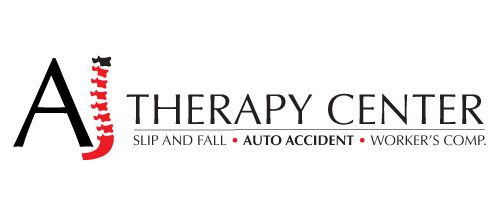Between 1988 and 1996, the National Highway Traffic Safety Administration (NHTSA) estimated that 805,581 whiplash injuries occurred. Neck injuries are the most reported claims for both personal and bodily injury insurance claims.
If you’ve been in a car accident, you know just how quickly something can go wrong. Even a car traveling as slow as 10 miles per hour can cause injuries.
And if your neck has been injured and you don’t seek help, the long-term effects of whiplash can be numerous. Neck pain after car accident isn’t something to be ignored.
To help you recover quickly and enjoy a pain-free life, here are three ways to avoid the long-term effects of whiplash.
Symptoms of Long-Term Effects of Whiplash
After an accident, you may not feel the full effects of whiplash. Whiplash symptoms delayed is not uncommon.
In fact, you may not feel the full symptoms of whiplash until a few days after the impact. The injury itself may not be felt for a full 12 hours after the accident.
If you feel neck pain after a car accident or any other type of accident, it’s always best to see a physician to make sure there’s nothing more serious.
A doctor may recommend x-rays like an MRI or CT scan to ensure there are no other injuries. They may also recommend you wear a neck brace for a short period of time.
Also, it’s not uncommon for whiplash injuries to last for months or even years if you’ve been involved in a serious accident. To ensure you don’t suffer longer than necessary, contact your doctor and schedule an appointment.
Common Symptoms of Whiplash
Since delayed whiplash symptoms are common, you may feel some of these 12 hours or more after your accident.
Your neck or shoulders may be in pain and/or you may feel stiffness in these areas. Upper or lower back pain and even jaw pain are also common symptoms of whiplash.
Whiplash headache is a very common symptom as is dizziness, blurred vision, and even ringing in the ears. If you find yourself constantly tired, suffer from concentration or memory problems or have difficulty sleeping, these may be signs you have whiplash.
Numbness and weakness in your arms and legs are also not uncommon.
Of course, not all symptoms are physical. It’s not uncommon to feel anxiety after an accident. Especially a car accident where you may feel anxiety every time you have to travel.
If you have continued anxiety or feel you have PTSD (post-traumatic stress disorder), get help. Talk to friends and family, get a massage, or get in touch with a licensed therapist to help you manage your feelings.
Whiplash Isn’t Always Caused by a Car Accident
Most people assume that whiplash is caused only by car accidents. But a car accident isn’t the only way to get this type of neck injury. Whiplash can occur in all types of vehicles, including while riding a bike.
Sports are another common way people get whiplash. Certain sports like boxing, karate, and football can easily cause whiplash. Other sports like horseback riding can also cause whiplash. Even an amusement park ride can cause a neck injury if the ride is too rough.
Other ways to get whiplash are when the head is jerked violently backward, when a person receives hits to the head, when someone is hit with a heavy item and when someone is the victim of physical abuse.
1. Applying Ice and Heat for Neck Pain After Car Accident
If you have neck pain after a car accident or another type of accident, ice is a great way to help reduce pain and swelling. Make sure you wrap the ice in a thin towel or cloth before you apply it to the skin. Otherwise, you risk further injury with ice burn.
Ice your neck for 15 minutes every three to four hours for the first two or three days.
After two or three days have passed with you icing your neck injury, it’s okay to start applying heat. Moist heat is best.
You can use warm, wet towels or, even better, take a warm bath. Try using essential oils in your bath that are known to help ease sore, painful muscles.
Oils such as peppermint, lavender, and thyme are known to promote healing. They also smell great and some even help ease symptoms of anxiety.
2. Best Medications to Use for Whiplash Symptoms
Your doctor may prescribe pain medications to you. Most likely, he or she will recommend you take non-steroidal anti-inflammatory drugs like ibuprofen (Advil, Motrin) or naproxen (Aleve) to help reduce pain and swelling.
These over-the-counter medications will also help you reduce whiplash headache symptoms. Keep in mind that all medications, whether they are over-the-counter or prescribed by a physician have side effects.
Take all medications as they are prescribed and try to wean yourself off of any painkiller as soon as possible to avoid becoming dependent on them.
There are times when your whiplash symptoms are more severe and require stronger painkillers than what over-the-counter drugs like Advil can provide. Your doctor may then write a prescription for stronger painkillers and muscle relaxants.
3. Massage and Other Homeopathic Treatments
If you have neck pain after a car accident, you don’t have to put up with the pain. Instead, contact a homeopathic therapist to help you heal more quickly.
One type of therapy that’s extremely beneficial is massage therapy. Massage therapy is used to reduce muscle tension and stiffness.
Massage therapy treatments also help with a greater range of motion, circulation, and reduces headaches. It also helps reduce chronic pain symptoms.
Massage therapy can also help reduce emotional symptoms as well. This type of therapy is known to reduce tension and creates a feeling of well-being.
If massage therapy isn’t for you. There are other types of homeopathic treatments such as Rolfing and chiropractic therapy that have shown benefits for patients seeking out pain reduction.
Regular Exercise Also Helps
Don’t forget the power of exercise. To help you stay pain-free, it’s best to continue exercising your neck on your own on a regular basis.
Your neck holds up your head which weighs about 12 pounds. Regular exercises can help alleviate all types of neck pain associated with a variety of activities.
Get Help Today
Whether you were just injured or you still feel the long-term effects of whiplash, don’t wait any longer to get the help you deserve.
You can live a life pain-free. You just need to get the right type of help.
Massage therapy can help. Book your appointment with us today.

